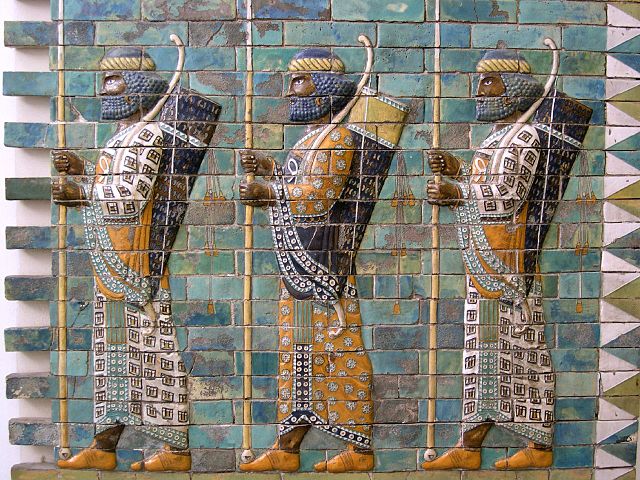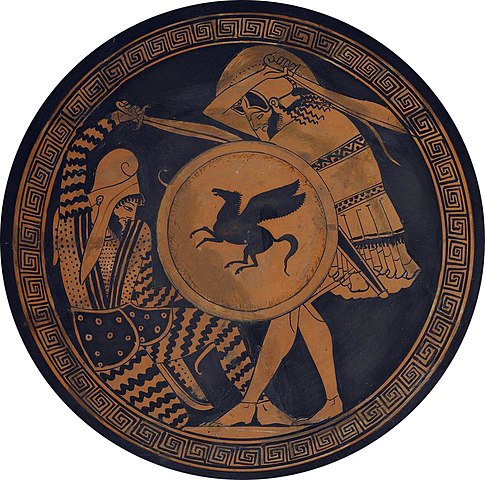The Persian Immortals were an elite combat unit during the First Persian Empire, also known as the Achaemenid Empire.
They were known for being at ten thousand strong at all times for which they actually seemed to be technically immortal.
From Hdt. 7.83.2
These were the generals of the whole infantry, except the Ten Thousand. Hydarnes son of Hydarnes was general of these picked ten thousand Persians, who were called Immortals for this reason: when any one of them was forced to fall out of the number by death or sickness, another was chosen so that they were never more or fewer than ten thousand.
Translation from Herodotus, with an English translation by A. D. Godley. Cambridge. Harvard University Press. 1920.
However it seems that modern historians do no think too highly of them during the Persian-Greek Wars of the 5th century B.C.
From Kleist, Joseph. "The Battle of Thermopylae: Principles of War on the Ancient Battlefield." Studia Antiqua 6.1 (2008): 14, p84., and based on Hdt. 7.211:
Whatever tactics the Immortals tried on the Greeks, Leonidas’ forces proved that they were the experts and that they were fighting against amateurs. Perhaps the next day would see a change in fortune for the god king to crush the seemingly weakened and fatigued Greek defenders after the first full day of battle.
And from Foster, Edith. "Thermopylae and Pylos, with Reference to the Homeric Background." Thucydides and Herodotus (2012): 185-215. p198
This quote points to a more general dismissal of the Persian troops.
This economical narrative has so far shown that the Persian forces could not prevail because their training and weapons are inferior; in addition their Spartan adversaries are better organized and protected by the narrow pass. Xerxes, who believes he is the centre of Persian strength, is a liability, and is ultimately reduced to helplessness. Leonidas has been entirely absent from the initial battle description; sentence-length explanations of each successive day have been the building blocks of a vivid story
And a quote pointing more to the Immortals' level of skill.
On the next day the Persian Immortals take over from the Medes; Xerxes is confident that these troops will easily finish off the Spartans (7.211.1). This expectation seems justified: these men are Persians, and trained, and there are 10,000 of them opposing the 4,000 Greeks.28 However, they fare ‘no better . . . but rather [experience] the same things’ as the Medes. Herodotus explains why the Persians can make no headway: the narrow pass protects the Spartans against the Persians, who cannot use their numbers and also have shorter spears (7.211.3). But the Spartans (on whom Herodotus focuses his account) also contrast to the Persians in skill (‘the Spartans showed that they knew how to make war among those who do not [know how to make war]’ 7.211.3).
The question: The Immortals had a reputation in the Persian empire, but were they also feared by the Greeks because of their so-called "immortal" status?

